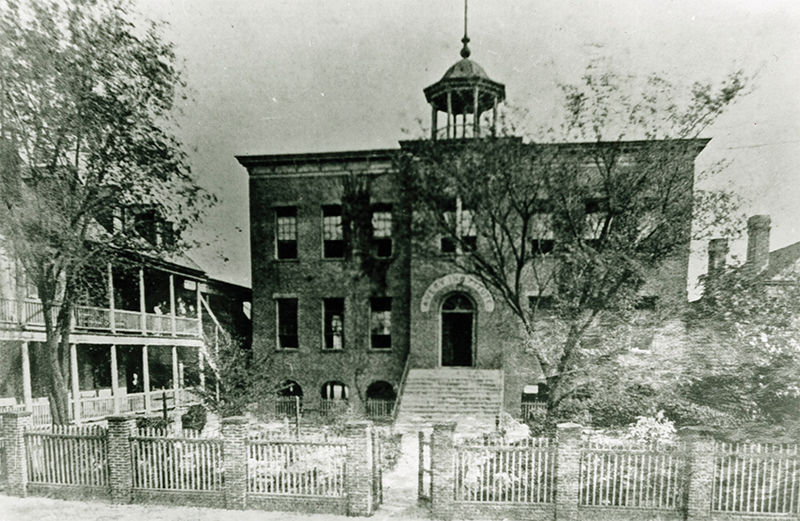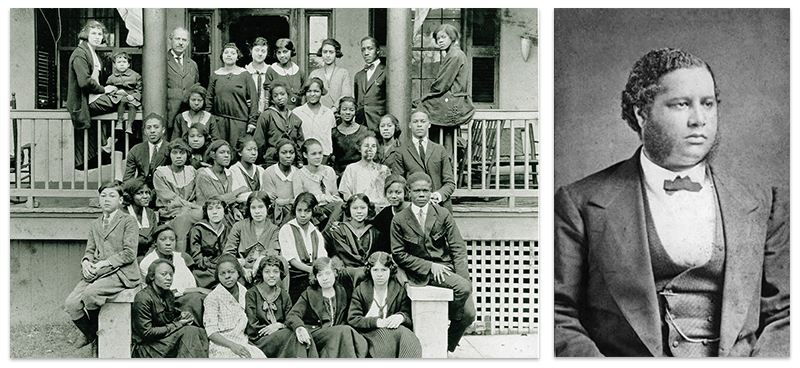The Avery Normal School is home to College of Charleston's Avery Research Center for African American History and Culture

The Avery Normal School was founded in 1865 to educate African Americans and is now home to College of Charleston’s Avery Research Center for African American History and Culture, which reopened to the public in January of this year after renovations.
The first day of February ushers in Black History Month just as it marks the birth of a Charlestonian who made American history. The son of a white Jewish man and a free woman of color, Francis Lewis Cardozo (born February 1, 1836) was first educated in South Carolina before earning degrees in Scotland and London and eventually returning to the US as a Presbyterian minister. Back in the Lowcountry after the end of the Civil War, he was instrumental in creating the Avery Normal School, founded in 1865 to educate African Americans. It is now home to the Avery Research Center for African American History and Culture at the College of Charleston. Cardozo championed education for all, making sure the new State Constitution he helped draft mandated free integrated public schools for the first time in South Carolina’s history.

(Left) An Avery Normal School class photo from 1924; (Right) Francis Cardozo
In another historical breakthrough, his election to Secretary of State made him the first African American elected to a statewide public office in this country. Terms as State Treasurer came next, even as he lectured as professor of Latin at Howard University. At Reconstruction’s end, he was jailed briefly (many historians think unfairly) on corruption charges.
He left South Carolina for a post in the US Treasury in Washington, DC, before returning to his true passion of teaching. He died in the nation’s capital on July 26, 1903. Cousinhood connected him to later Supreme Court Justice Benjamin Cardozo, and his granddaughter Eslanda Cardozo Goode married another historymaker: black singer, actor, and activist, Paul Robeson.